By Lauren Taylor, Manager, Environmental Services, PROtect, LLC
The Canada Clean Fuel Regulations (CFR) have been in effect for over two years, and U.S. ethanol facilities are taking advantage with over 650 million gallons exported to Canada in 2023. Similar to low carbon fuel programs in California, Oregon and Washington, Canada has targets to reduce greenhouse gas (GHG) emissions from the transportation sector, requiring primary suppliers of gasoline and diesel to gradually reduce the carbon intensity (CI) of their fuel produced and used in Canada by creating or buying credits to comply with the reduction requirements. Low CI biofuel, such as ethanol, can be sold into Canada to create and sell credits to these primary suppliers.
For a U.S. ethanol facility to participate in the Canada market, they must register as a foreign supplier through Canada’s Credit and Tracking System (CATS). Once registered, the facility may submit an Application for Approval of a Carbon Intensity. A pathway using Canada’s Fuel Lifecycle Assessment (LCA) Model must be submitted for facilities seeking a site-specific Final CI (consists of 24 months of data) or a Temporary CI (less than 24 months but greater than 3 months of data).
For facilities who currently have a pathway to continue participating in the Canada market after Dec. 31, 2025, they must submit a pathway application using the new Fuel LCA model that was released in June 2024. According to the CFR, facilities must submit the new application before Sept. 30, 2025, to meet the Dec. 31, 2025 deadline. This application must be verified by an Environment and Climate Change Canada accredited verification body prior to submitting the application. As opposed to other low carbon fuel programs, the verification report must be submitted with the application to Canada.
For facilities who have a pathway, there are ongoing requirements to comply with the CFR. First, as a foreign supplier, you are subject to submit the Carbon Intensity Pathway Report and Material Balance Report, due annually by April 30. Similar to fuel pathway applications, these reports must be verified prior to the deadline. If you are also the registered creator (usually the importer into Canada), there are several credit creation reports that are submitted on a quarterly and annual basis as well.
Land Use and Biodiversity requirements for corn feedstock also became effective in 2024. Due to corn grown in the U.S. receiving legislative recognition under the CFR, the requirements are minimized to obtaining and maintaining declarations for the corn used to create ethanol shipped to Canada from the farmer or collection center. It is the responsibility of the ethanol facility to ensure the collection center is obtaining declarations from the farmers who provide them with corn.
With Canada and other markets each having their own compliance requirements, do your homework to ensure your facility is complying with the programs and find commonalities to help minimize the administrative burden.



